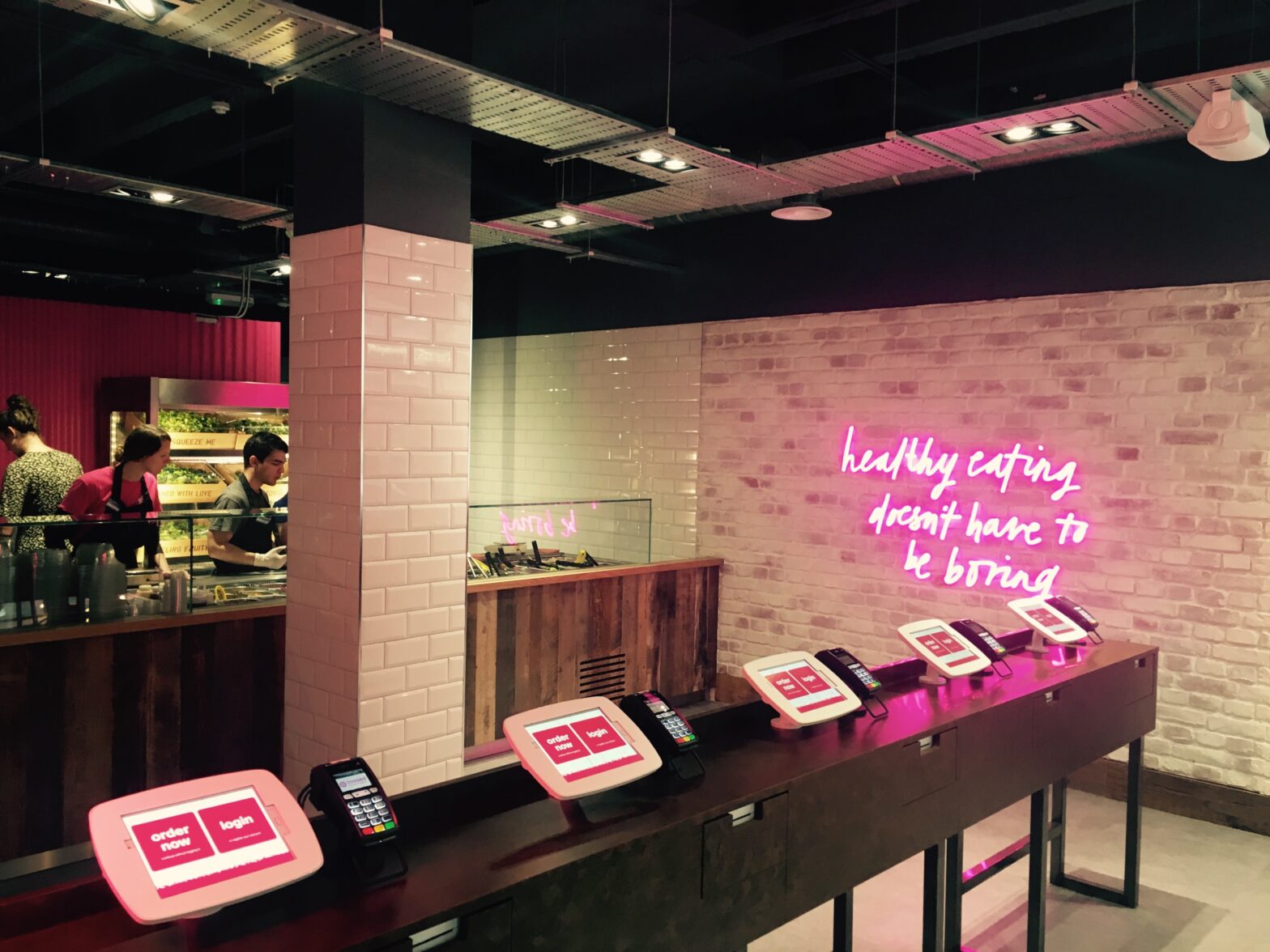The case for a cashless economy has been building since the height of the 80s credit card culture, revived again in the UK with contactless payments going mainstream. Now, Tossed, the crowdfunded salad-and-sandwich eatery, has launched completely cashless stores as part of its ultimate goal to “remove paper from its shops”.
Tossed will open two new cash-free stores this week: Coleman Street and Upper Thames Street. Both are fitted with 15 self-service kiosks instead of manned tills, and will take payment by credit or debit card, contactless and Apple Pay.
This is the first eatery in Europe that has gone completely cashless, an investment off the back of last year’s £1.27 million crowdfunding round with Seedrs.
A brave new world
At the end of last year, the amount of actual cash in the UK stood at £73.6 billion, while electronic money is now at £2,034 billion.
“Over the last few years significant steps have been made towards a cashless society. However, a lot of questions still remain on the use of different forms of money,” according to Markos Zachariadis, assistant professor of management and information systems at Warwick Business School.
“Banking institutions are being challenged by a host of start-ups, vying to map out how we transact and exchange values in the future. Interestingly the banks and credit card companies are working with many of these start-ups to explore the opportunities these new technologies have opened up. After all, they have three options: build their own solutions to compete with the disruptor, buy the disruptor, or partner with it,” he explained.
Contactless spending increased almost fourfold last year, and since the start of the millennium, debit card ownership by UK adults has increased from 77 per cent to 91 per cent. With Apple Pay firmly placed in the market and the anticipated arrival of Google’s Android Pay and Samsung Pay, it may only be a matter of time when cashless payments become the norm.
“Massive handset coverage in the UK will be the catalyst that accelerates digital wallet uptake and the decline in cash payments. When it hits the UK, it’ll impact the majority, 98% in fact, of our customer base,” MBNA’s head of innovation, Gary Watts, summarised.
Watts cautioned that there may always be “a certain level of trepidation” when it comes to adopting cashless payments that could lead to the survival of physical cash.
>See also: What will a cashless future look like?
18 hours wasted in queues
The business case for going cash-free is particularly strong for retailers.With over 300,000 people commuting to the City every day, the lunchtime crowd requires assembly line precision and speed. A study examining UK’s ‘queuing culture’ revealed that the average Brit spends over 18 hours a year queuing. According to a Visa Contactless survey of 2000 UK consumers, 89 per cent have left a store as a result of the length of the queue, with two thirds admitting they’ve visited a rival store straight after in order to get what they need.
“Unlike some of our European neighbours, the British accept that queuing is a necessary and fair way of making a purchase. However, psychologically the length of time that we have to queue also affects our purchase decisions,” explain behavioural psychologist Jo Hemmings.
Neil Sebba, finance director at Tossed, sees adopting cashless kiosks as a natural move, commenting: “Contactless, digital ordering and mobile payment make cashless payment systems so quick and painless nowadays.” For the food-to-go market, cutting down on waiting time may give businesses the competitive advantage they need to corner the market.
Money, money, money
When ABBA sang about it, the Swedish pop stars may not have immediately thought money would primarily be paperless. According to a recent study from KTH-Royal Institute of Technology, Sweden can currently claim to be the world’s leader in cashless trading. “Our use of cash is small, and it’s decreasing rapidly,” says Niclas Arvidsson, researcher and author of the study. “Cash is still an important means of payment in many countries’ markets, but that no longer applies here in Sweden.”
Roughly 80 per cent of retail transactions are paperless in Sweden. Watch the video below to know more.
In Sweden, cash is no longer king from Sweden on Vimeo.







